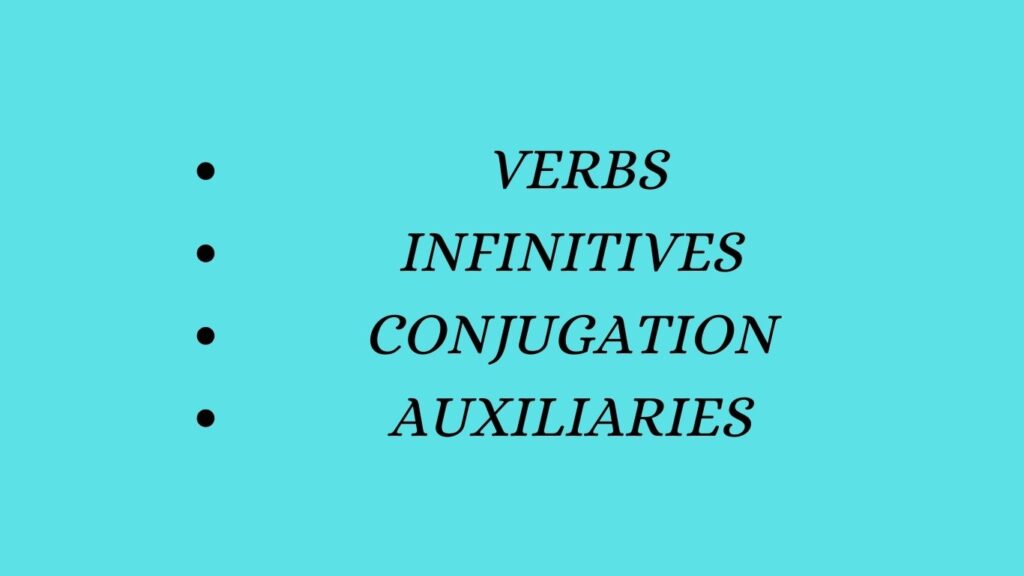What is a Verb?
A verb is a word that expresses action, occurrences, or states of being in a sentence. It describes what someone or something does. They allow us to express actions, feelings, states of being, and much more.
In French, as in English, verbs are conjugated to match their subjects (i.e. a person, place, thing, and an idea).
From the past, present, and future tenses to the indicative, subjunctive, and imperative moods, verbs in French provide a rich tapestry of expression.

Infinitives
Infinitive is a basic form of the verb that is not conjugated and is used as it is. It does not refer to a particular tense, person, or subject. For example, in English, we say “to use”, “to say”, “to finish” to indicate it is an infinitive form of a verb, and the prefix “to” is used. But in French, a single word without any modification (unconjugated) indicates the infinitive of a verb. For Example, parler, finir, utiliser, aller, etc.
Conjugation
One of the uniqueness of French verbs is their conjugation. Conjugation means to conjugate a verb depending on the subject. In English, most verbs have relatively simple conjugations (e.g., “I eat,” “you eat,” “he/she eats”), and only third person singular has one conjugation (eats) but French verbs change their forms depending on who’s performing the action.
Most verbs are regular, which means that the conjugation of the verbs follows the same pattern. The most common verbs, however, are irregular, which means that the conjugation of the verb varies in each subject pronoun and does not follow any pattern.
Formation of Auxiliary Verbs:
Être- To be
It is an irregular verb as it does not follow any pattern while conjugating. It has its own conjugation and is also called an ‘Auxiliary verb’
| SINGULAR | PLURAL |
| je suis (I am) e.g. Je suis étudiante. | nous sommes (We are) e.g. Nous sommes amis. |
| tu es (You are) e.g. Tu es très poli. | vous êtes (You are) e.g. Vous êtes gentil. |
| il/elle/on est (He is/She is/One is) e.g. Il est à la banque. Elle est au marché. On est occupé en ce moment. | ils/elles sont (They are) e.g. Ils sont heureux. (masculine) Elles sont heureuses. (feminine) |
Avoir- To have
It is an irregular, auxiliary verb and is another highly versatile verb used to express age, physical sensations, possessions, necessities, etc.
| SINGULAR | PLURAL |
| j’ai (I have) e.g. J’ai un chat. | nous avons (We have) e.g. Nous avons beaucoup d’amis. |
| tu as (You have) e.g. Tu as trois stylos. | vous avez (You have) e.g. Vous avez de la chance. |
| il/elle/on a (He has/ She has/One has) e.g. Il a deux soeurs. Elle a une idée. On a des fruits. | ils/elles ont (They have) e.g. Ils ont une petite poupée. Elles ont une excellente idée. |
Note: With avoir verb, in the first person singular we use an apostrophe (‘) because when two vowels come together the previous letter is replaced with an apostrophe. But this does not apply in the second person singular (tu) because putting an apostrophe can change the meaning of the sentence. As ”tu” is a pronoun and (t’) is a verb.
